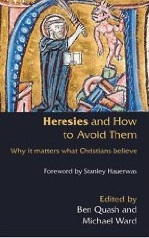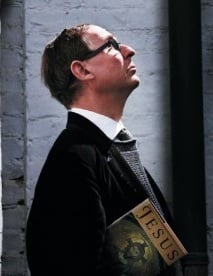
Pelagianism “implicitly denies the existence of original sin and asserts that people can take the initial steps towards salvation by their own efforts, choosing the good by virtue of their created natures” (91). Augustine, once again, was the opponent of Pelagius and Pelagianism was officially denounced by Zosimus, the bishop of Rome in 418 AD.
Where do you see Pelagianism today?
Pelagius was intelligent and used the Scriptures to great effect, and this leads Adams to reflect on how we are to respond to heresies: we can annihilate the opponents and their views (misquote, exaggerate, discredit character, and tell the whole story through our own lens). Or we could take the ideas head-on. This is how Augustine approached Pelagius.
Adams contends that Pelagius wanted to be right about the relationship of sin and grace, terms that were not as clear then as they are today. Augustine teaches that everyone is a sinner — by birth and behavior. Adams, unhelpfully I think, delves into Paul’s use of Psalm 14 and Augustine’s use of Romans 3 and on seeing the whole and trying to say too much and not saying enough, and could have helped us right here by spending more time on Augustine and Pelagius.
Not the best chp in this book. Instead of dealing with the concrete issues of Augustine and Pelagius, and how each conceived of the relationship of sin and grace (Augustine — work of God through and through; Pelagius — some kind of synergism or worse), he spends time discoursing about the discourse.

